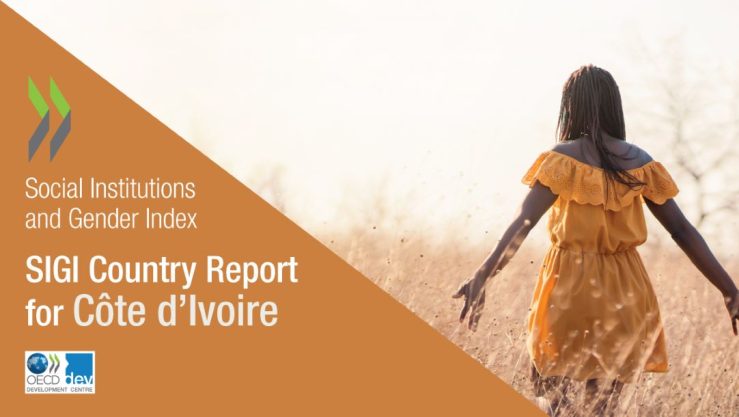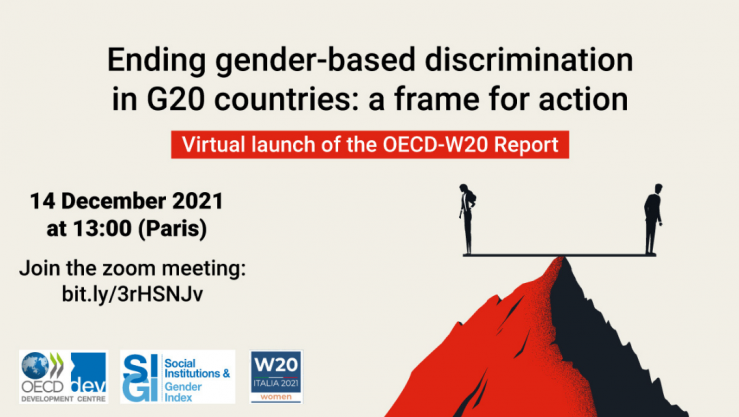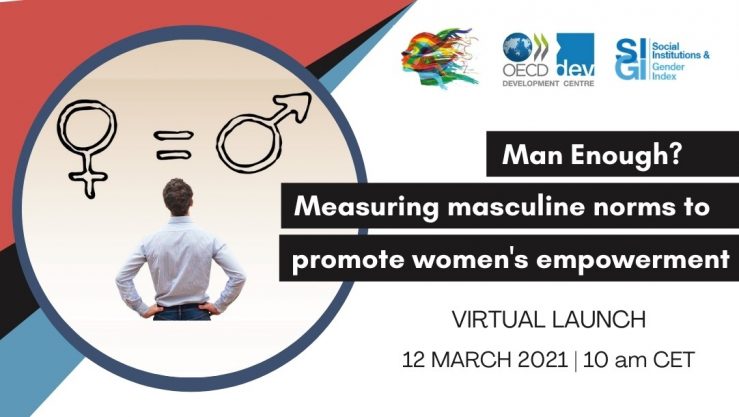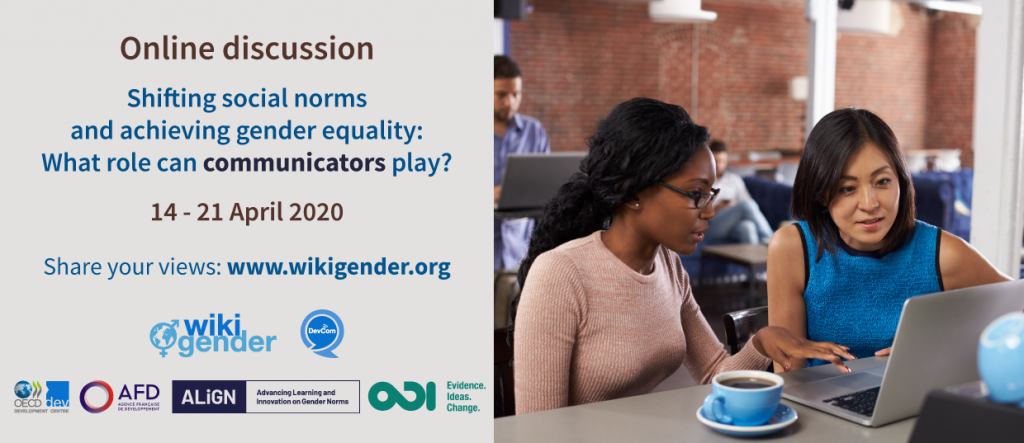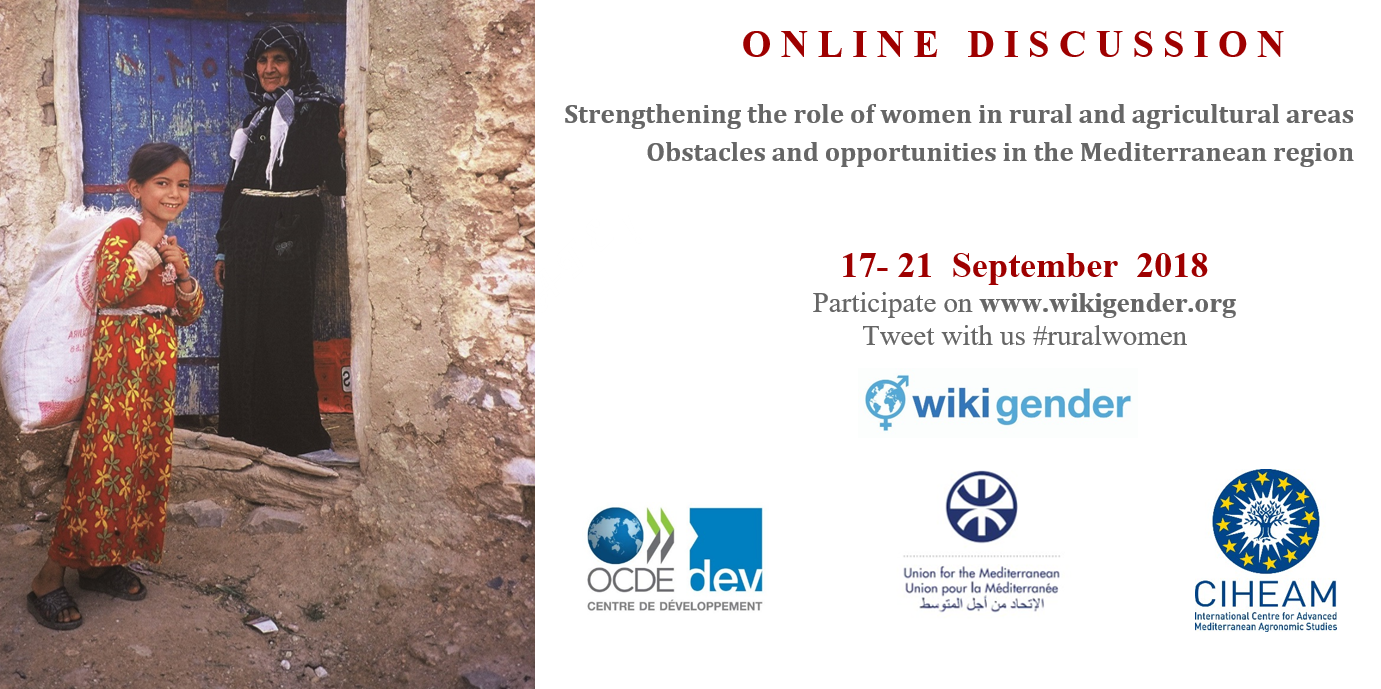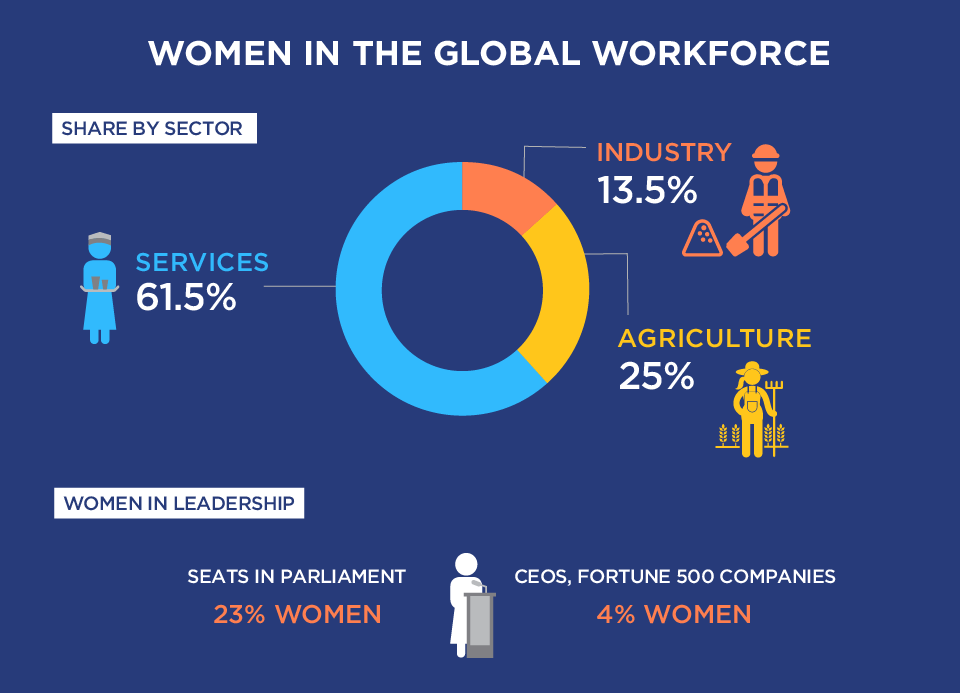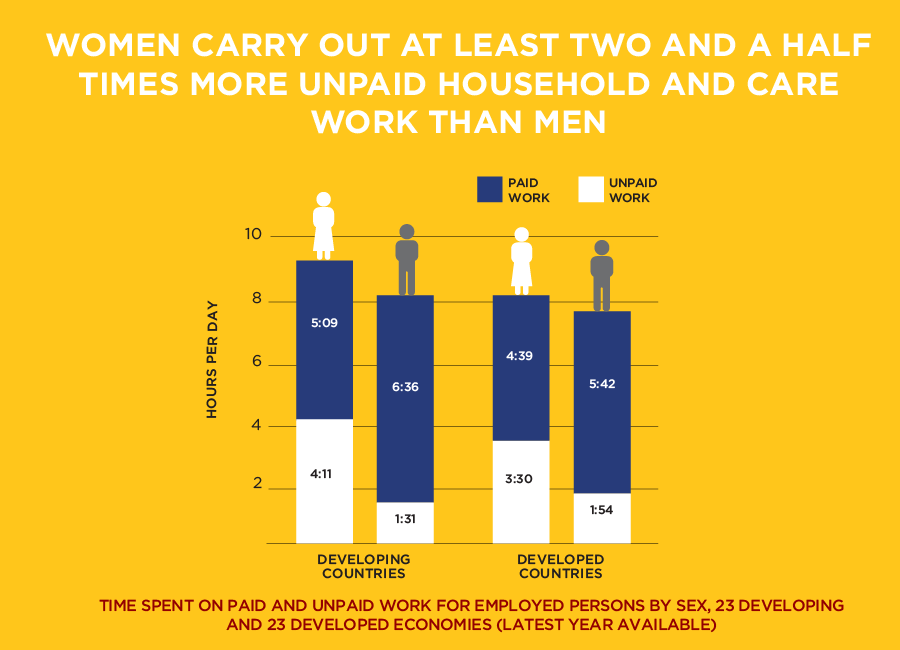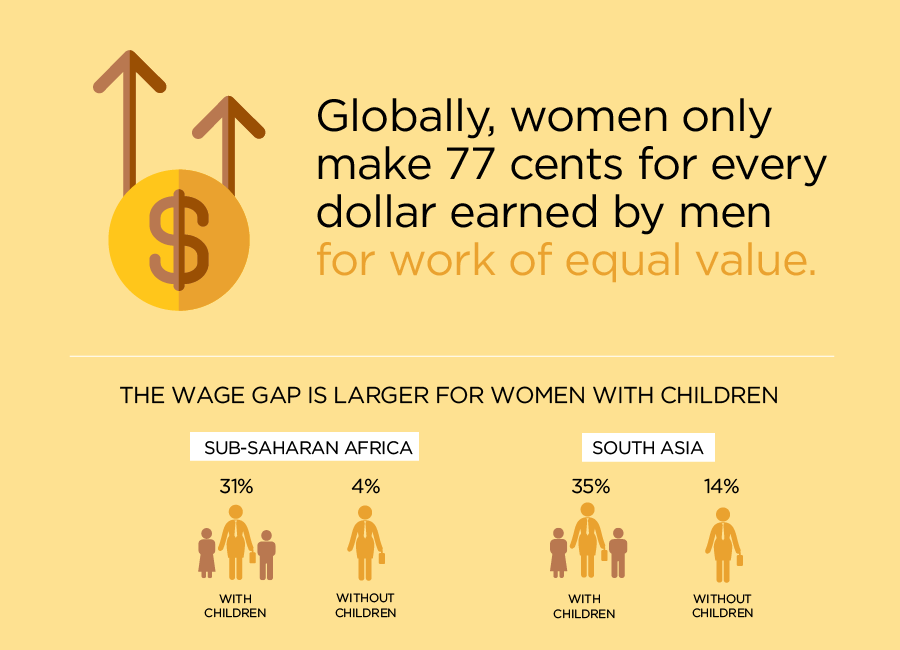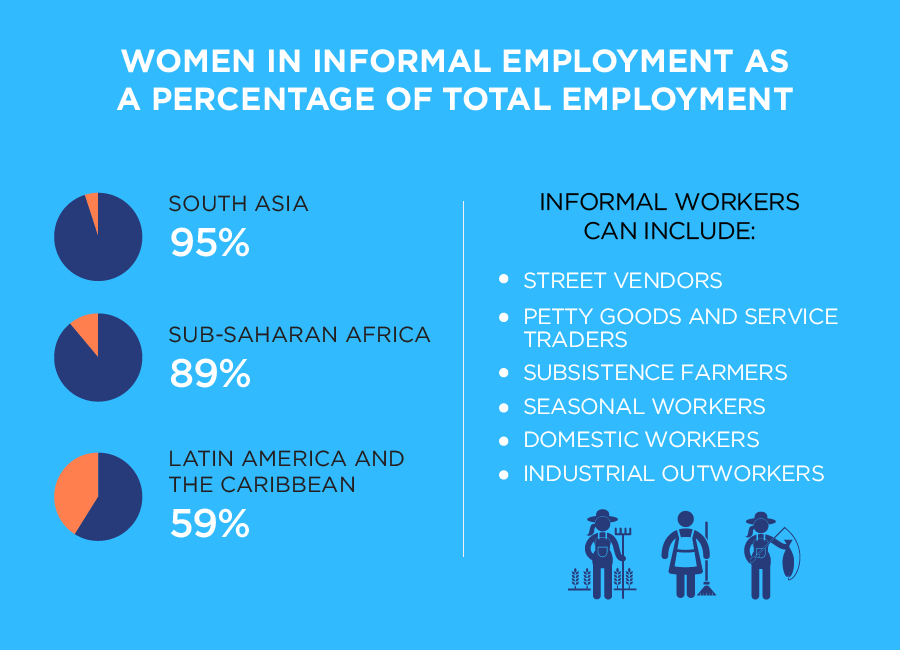To access the synthesis report of this online discussion click here.
Context
Women everywhere are held back by discriminatory social norms. Changing social norms starts with new laws, but also with changing attitudes and behaviours.
As our Social Institutions and Gender Index shows, just over 1 in 4 women around the world still believe that spousal violence is sometimes justified. Almost half of all people think that men make better political leaders than women. In the household, women globally still undertake 75% of unpaid care and domestic work.
The current COVID-19 crisis is exacerbating gender inequality and some of these harmful social norms. Confined at home with schools closed, women are under pressure to conduct unpaid care work and schooling, and many are suffering from increased domestic violence. Moreover, women represent the majority of the healthcare workforce and are therefore on the frontlines of battling the pandemic.
Communication is a powerful tool that can help shift attitudes and behaviours, and digital communications have opened up new possibilities for dialogue and interaction.
This is why the OECD DevCom Network has proposed 7 Principles in Communicating for Gender Equality. The principles draw on a number of exchanges and a Workshop that DevCom organised with leading campaigners, researchers and policy makers in late 2018.
The discussion is organised in partnership with the Agence Française de Développement, the Overseas Development Institute, the Align Platform and the Generation Equality Forum.
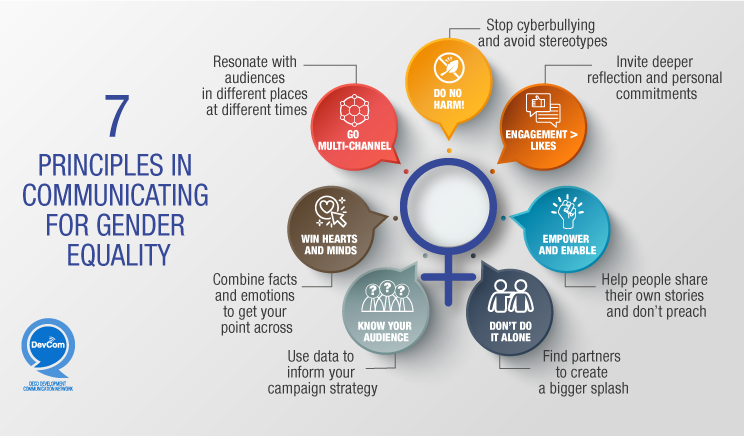
Aim of this online discussion
As we experience the COVID-19 pandemic and look ahead to the Generation Equality Forum, this online discussion aims to:
- Provide a space for dialogue on communicating for gender equality;
- Generate advice for anyone communicating for gender equality and behavioural change.
You can help us achieve these goals! Join our discussion by responding to the questions below from 14-21 April 2020. The discussion is open for contributions in English, French or Spanish.
The outcomes of this discussion will be synthesised in a short note, published on Wikigender and on DevCom’s SDG Communicator platform. We will also share results at future events, inviting policy makers and key development actors to commit to better communications on gender equality.
Guiding questions
- IDENTIFYING GENERAL PRINCIPLES
- Which of DevCom’s 7 principles do you consider to be most important, and why? Are there further principles that you would add to the list?
- What do you regard as communications priorities during the current COVID-19 pandemic?
- SHARING LESSONS AND EXPERIENCES
- Can you provide an example of how you are applying one or more of the principles? Please tell us what you have learned!
- Do you know any campaigns that successfully raised awareness on gender equality and had an impact on attitudes and behaviours? Why do you think they were successful?
- During the current COVID-19 pandemic, online interaction is sky-rocketing. Have you come across any empowering campaigns?
- LOOKING AHEAD
- Looking forward to the Generation Equality Forum, what will you or your organisation do to improve your communications and campaigning for gender equality?
- How can we spread the word and encourage organisations to consider the 7 principles?
Contribute!
We look forward to your participation! We strongly encourage you to disseminate news about the online discussion via your networks and on Twitter using #CommunicatingGender and the following link to this page: https://bit.ly/34lMFJ4 Secondary hashtags include: #Communications #GenderEquality #socialnorms #Covid19Comms #GenerationEquality #OECDDevCom #SIGI
- To participate, simply type your comment below or register directly via Disqus, Twitter, Facebook or Google before typing your comment. Open for comments from 9am on 14/04 until 6pm on 21/04
- To insert a URL hyperlink, make sure you shorten the URL first before posting it, otherwise it may not work. (e.g. using bitly, google url shorterner, tiny url…)
Anyone with an Internet connection is invited to participate in the discussion and we encourage you to express your views on this pressing issue.
Please note however that comments will be moderated to ensure that there is no spam disrupting the discussion.
Problems to comment?
Please make sure your browser supports Javascript. Disqus is rendered correctly in all major web browsers, including Internet Explorer, Firefox, Chrome, Safari, and Opera.
If you encounter any problem posting your comment, please email us at contact@wikigender.org and we will assist you.


